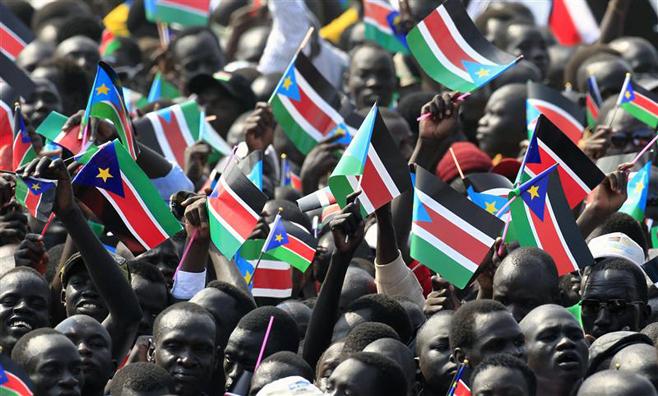African states should support the Commission on Human Rights in South Sudan
This week, in Geneva, the UN Human Rights Council will consider a report by the Commission on Human Rights in South Sudan (CHRSS). A group of states will also present a resolution aiming to extend the Commission’s mandate and maintain a high level of attention to South Sudan’s human rights situation.
The CHRSS is one of the strongest mechanisms ever created by the Human Rights Council. It has a broad mandate to monitor and report, investigate, collect and preserve evidence of abuses, and provide advice and support, including regarding transitional justice. Its reports have been among the most compelling released by a UN human rights body. Since 2016, the Commission has shed light on atrocities committed against South Sudanese citizens, applying thorough methodologies and documenting abuses with the highest level of professionalism.
Among the abuses documented: violations of international law that may amount to war crimes and crimes against humanity, including deliberate starvation of civilians, sexual and gender-based violence (SGBV) with a “recognizable pattern of terror and subjugation,” violations of fundamental rights, and deeply entrenched impunity. This year’s report shows that while a full-on civil war has not resumed, myriads of localized conflicts pose a massive risk to the country’s stability.
Since last year, attacks on civilians by armed groups and militias have intensified. The scope and scale of violence documented by the CHRSS “far exceeds the violence between 2013 and 2019.” This means that the situation is actually worse than last year, when the Council last renewed the Commission’s mandate.
The CHRSS remains a vital mechanism. While it focuses on its human rights mandate, its work is also part of African and international efforts to usher in sustainable peace, stability, and respect for human rights in South Sudan. By accepting its establishment and extension, on several occasions, the South Sudanese government sent positive signals to its international partners, in an effort to build confidence and trust.
As the government, which is now almost fully constituted, two and a half years after the signature of the Revitalized Peace Agreement, is claiming that it only needs “technical assistance” and attempting to discontinue the mandate of the CHRSS, states should reject this premature move. They should make clear that they expect South Sudan to deliver progress before considering a different approach. African states, in particular, should support the Human Rights Council’s current approach – which is grounded in the work of the CHRSS.
When South Sudan has made demonstrable progress against key human rights benchmarks – including operationalizing transitional justice institutions as per Chapter V of the Peace Agreement, putting an end to pervasive SGBV, ensuring accountability for the most serious crimes, including at the command responsibility level, and reforming the abusive National Security Service – then another type of international engagement and scrutiny will make sense. But the steps that must be taken go way beyond mere political announcements, like those of 29 January 2021.
That day, the cabinet approved a plan by the Ministry of Justice and Constitutional Affairs to start setting up Chapter V institutions, including the Hybrid Court for South Sudan (HCSS). However, we need much more from the government. Swift and concrete action is needed to implement this plan and operationalise all transitional justice mechanisms. In particular, the legislature must be re-established to pass the necessary legislation. In the meantime, the mandate of the CHRSS remains critical to ensure collection and preservation of evidence for prosecution of perpetrators with a view to ensuring accountability for the victims.
As risk factors of further atrocities exist, local-level violence is increasing, and civic space is under intense pressure, African states should heed the message a group of South Sudanese, African, and international NGOs sent ahead of the session: send the right signal to the South Sudanese people; support the extension of the CHRSS’s mandate in full.
Hassan Shire
Executive Director, DefendDefenders
Chairperson, AfricanDefenders

